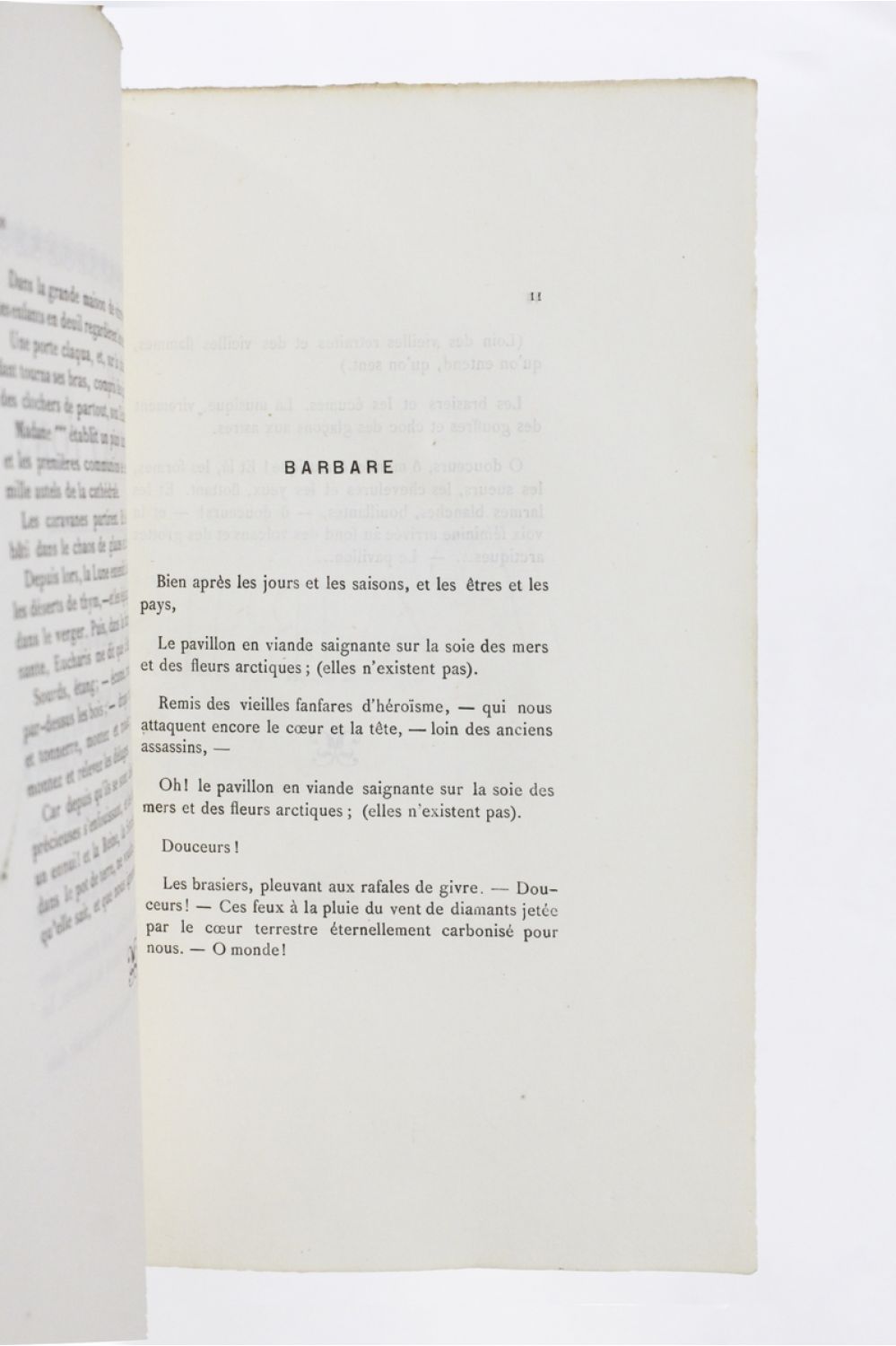
That brings Rimbaud into the present, here and alive in New York City. But, most centrally the show focuses on the poems themselves - poems which the Civilians animate through performance, song and an eclectic theatricality. He’s influenced Patti Smith, Bob Dylan, Jim Morrison, David Wojnarowicz and Jean-Michel Basquiat, to name a few. The show finds Rimbaud in the 1950s of Ashbery and Frank O’Hara, in the downtown scene of the 1970s and in the many artists and musicians. John Ashbery’s recent highly-acclaimed translation offers us these poems through the wonderfully precise and always surprising language of one of America’s greatest contemporary poets.įor Rimbaud in New York, the Civilians create a wildly original, playful and enriching inquiry into the meaning and legacy of Illuminations, staging how these revolutionary poems continue to resonate in the American imagination, setting off explosions in the minds of new readers. 130 years later, this dazzling book of poems, written mostly in prose, continues to amaze. Verlaine published his complete works in 1895.Boy genius, rebel, visionary, Rimbaud set off a bomb in the world of letters with the publication of Illuminations. Rimbaud died on November 10, 1891, at the age of thirty-seven. The doctors were forced to amputate his leg, but the cancer continued to spread. In 1891, Rimbaud traveled to Marseilles to see a doctor about a pain in his knee. He spent the final twenty years of his life working abroad, and he took jobs in African towns as a colonial tradesman. In his correspondence with family and friends, Rimbaud indicates that he spent his adulthood in a constant struggle for financial success.

His only writing after 1875 survives in documents and letters. Rimbaud wrote all of his poetry in a span of about five years, concluding around the year 1875.

The book was published in 1873 in Brussels, but the majority of the copies sat in the printer’s basement until 1901 because Rimbaud could not pay the bill. Verlaine was imprisoned, and Rimbaud returned to Charleville, where he wrote a large portion of Une Saison en Enfer ( A Season in Hell). While in Brussels in 1873, a drunk Verlaine shot Rimbaud in the hand. Shortly after the birth of his son, Verlaine left his family to live with Rimbaud.ĭuring their affair, which lasted nearly two years, they associated with the Paris literati and traveled to Belgium and England. Though Rimbaud’s moved out soon after, as a result of his harsh manners, he and Verlaine became lovers. He wrote to the poet Paul Verlaine, who invited him to live in Paris with him and his new wife. That same year, his school shut down during the Franco-Prussian War, and he attempted to run away from Charleville twice but failing for lack of money. Rimbaud began writing prolifically in 1870. His teacher and mentor Georges Izambard nurtured his interest in literature, despite his mother’s disapproval.

By the age of thirteen, he had already won several prizes for his writing and was adept at composing verse in Latin. His father, an army captain, abandoned the family when he was six. Jean-Nicolas-Arthur Rimbaud was born October 20, 1854, in the small French town of Charleville.


 0 kommentar(er)
0 kommentar(er)
